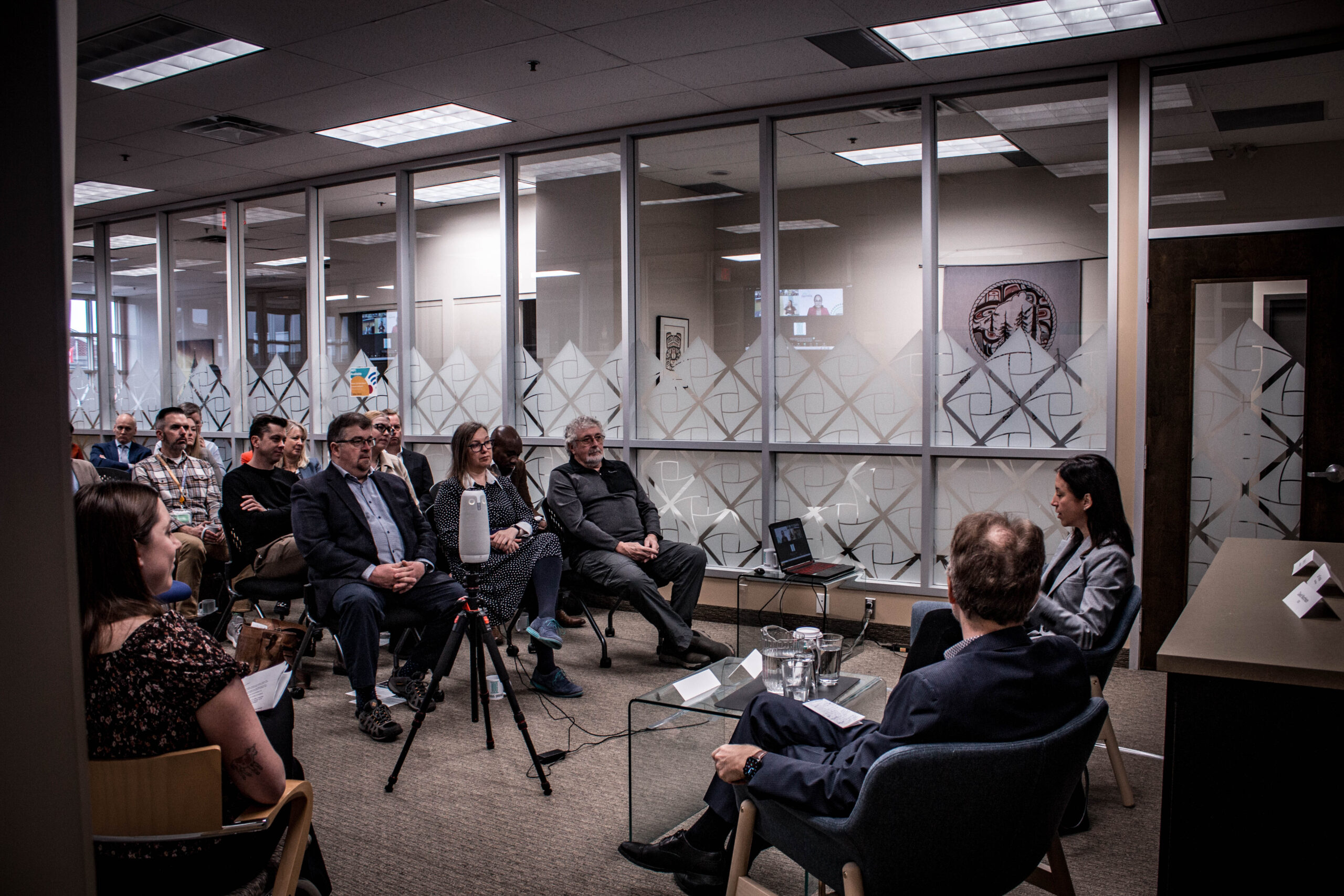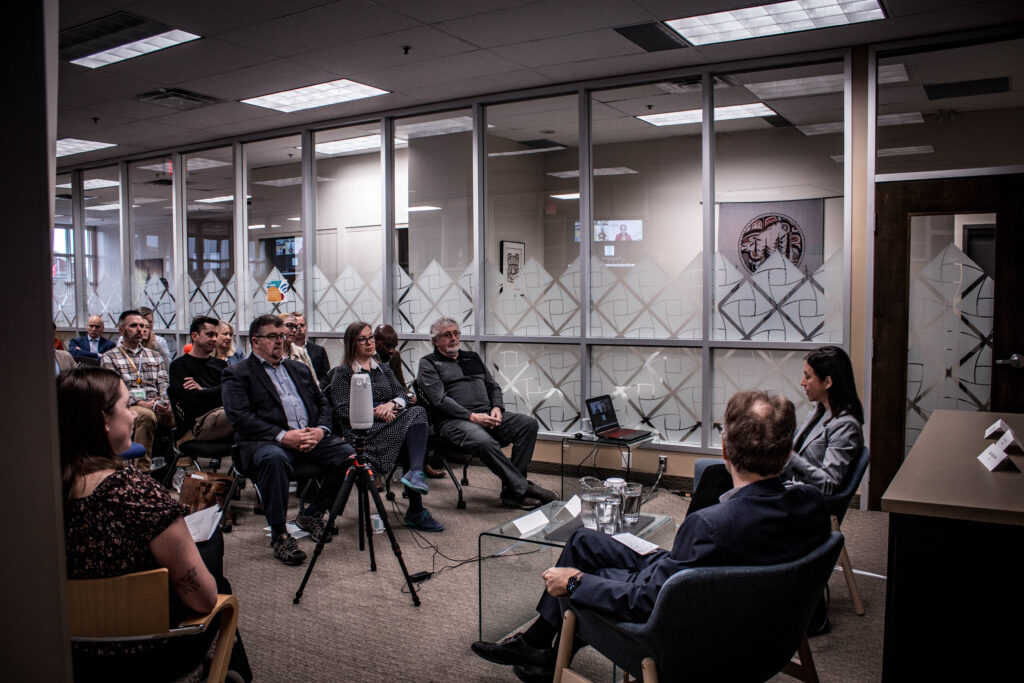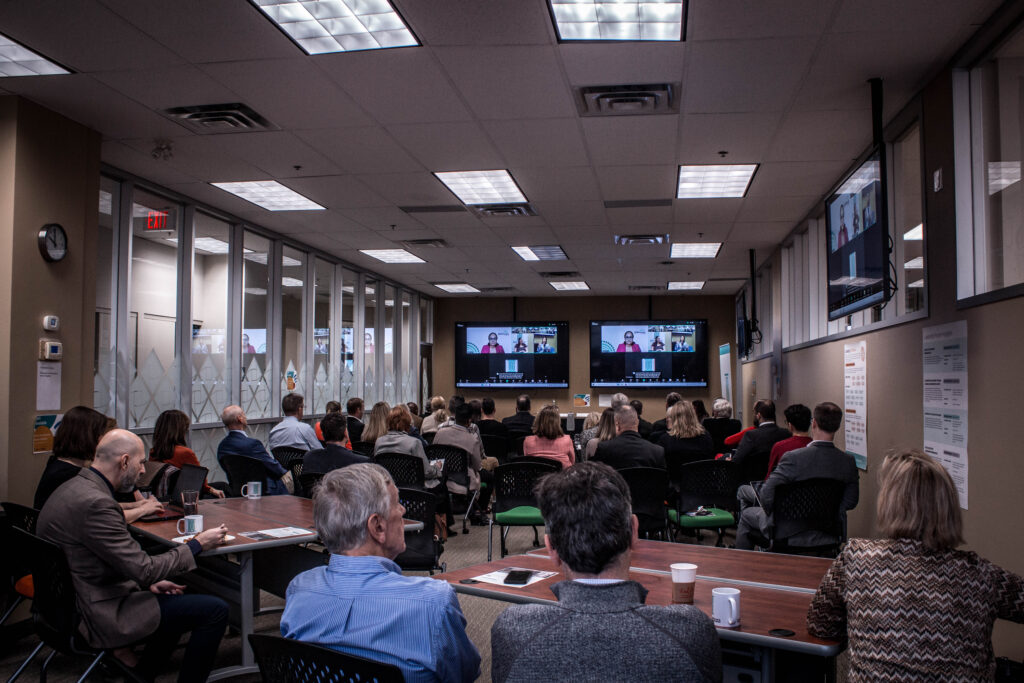Navigating Public Services Challenges

By Rhonda Moore
December 4, 2024
Deliver great services. Implement ethical guard rails for the use of AI. Identify modern values to guide the work of thousands of people across the country. Ensure public servants have the skills to address challenges facing Canadians. These are just some of the challenges facing our federal public service, and some of the topics that were discussed at IOG’s 20 November event of the same name.

The event kicked off with a presentation by Siobhan Benita of the Global Government Forum. Siobhan’s presentation focused on the findings of a recent report entitled Making Government Work: Five Pillars of a Modern, Effective Public Service. The five pillars are:
- Strong leadership with mutual respect and alignment between ministers and senior officials
- A highly skilled, inclusive and thriving workforce
- An agile, digital and risk taking culture focused on delivery
- Collaborative working structures that transcend organizational silos
- A service that is trusted by its users and the public
The discussants – Chris Fox, Deputy Clerk, Privy Council Office and Graham Flack, Former Secretary, Treasury Board of Canada – reflected on the themes Siobhan presented, through the lens of their own experiences in current and past roles. The following summary draws from both reflections, at times knitting their point together.
Public Service Values and Ethics. One discussant talked about joining the public service in the 1990s and being instilled with a clear purpose – for themselves and for the public service – which included a strong moral code, bolstered by the values and ethics statement of the public service. Fast forward to the present day; in the last four years, the public service has hired thousands of staff who have never met their supervisor in person, never experienced an in-person town hall meeting, and have never had the privilege of a quick chat in the hall with a member of the senior executive. Arguably, the online environment has robbed new public servants of some of the formal and informal onboarding that was so critical for previous generations of public servants, and which assured their immersion in the culture of the public service. In the absence of such immersion, there is a deep desire for real conversations about the role of the public servant, what it means, and to have a values and ethics code that reinforces neutrality, service to Canada, but also recognizes the contemporary Canadian landscape in a complex, and shifting geopolitical one. Conversations already underway as part of the ongoing work of PCO to revisit the Values and Ethics of the public service have raised important topics including but not limited to:
- Advocacy, neutrality, and the public service
- Whether the public service is taking bad behaviour (by public servants) seriously
- Practical guidance for public servants as to when and how they may use AI in their work
The culture of the hybrid public service is different than when everyone lived in the same city and worked in the same buildings. There is a challenge facing the public service now to identify and promote the culture it wants to have as well as developing a means to convey that culture effectively using hybrid communication vehicles. This is no small feat.

A digital government. There is a growing sense that Canada’s early attempts at digitalization and digitization were effective and even cutting-edge. But at some point, Canada began to lose its competitive edge when compared to other countries. The loss, or perhaps more appropriately the inability, to regain that edge is contributing to a decrease in trust among Canadians, and producing a narrative that the public service is risk averse, and not innovative. In fact, many of Canada’s social services are running on elaborate and powerful systems that are aging. The systems perform well at tasks for which they were designed. Less obvious to most Canadians are the significant investments required to update these powerful systems, and the places in the public service where public servants are creating opportunities for risk taking to better determine what the true IMIT needs of the public service are. Helpfully, alongside the various innovation hubs that have sprouted up in recent years is language about minimum failure rates in order to encourage true experimentation.
These challenges facing the public service are no small feat. Cultural change is a perennial topic of interest for those in leadership positions throughout the public service. Investments to design, build, and implement large systems like the ones that run national programs for Canadians require careful design and consideration and demonstration that public funds are being used effectively. These challenges present opportunities to address other challenges facing the public service, such as improving transparency with Canadians, rebuilding trust between governments and citizens, and improving social cohesion.
Join us for the next talk in this series! On 11 December, the panel – Bruce Anderson, Jennifer Irish, and Sarah Stinson – discuss Responding to Disinformation. For more information or to register, visit us here.